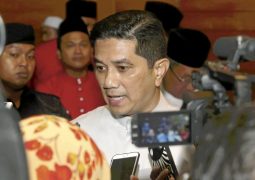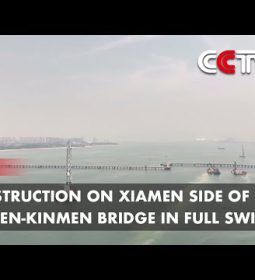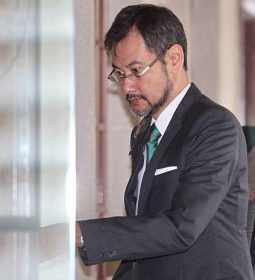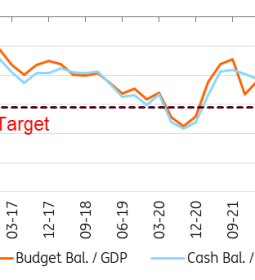Israel’s Hard-Liners Want to ‘Go Big’: Annex a Settlement
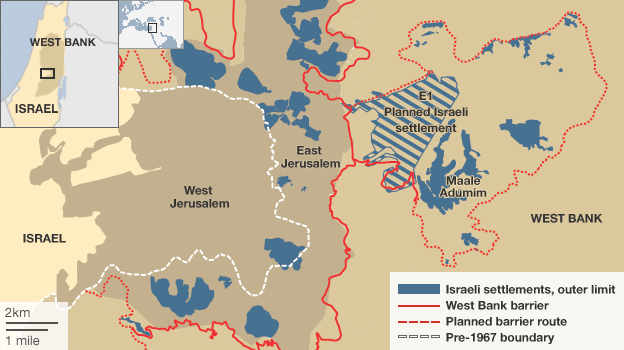
MA’ALE ADUMIM, West Bank — The first babies of Ma’ale Adumim, a hilly city on the eastern outskirts of Jerusalem, are now middle-aged. A cemetery finally opened last year, and 40 residents are buried there, most dead of natural causes after long and peaceful lives.
That is to say, there is nothing temporary about this place, one of the closest settlements to Jerusalem in the occupied West Bank, which Israel seized from Jordan 50 years ago. “It’s part of Jerusalem,” said Sima Weiss, 58, who has lived here 30 years, raised three children and works a cleaning job just 20 minutes away by bus in the holy city proper. “I don’t feel like a settler.”
The world has focused more critically recently on Israel’s settlements in occupied territory, after last month’s United Nations declaration — which the United States tacitly supported — that they are killing the dream of one state for Jews, one for Palestinians.
Many Israelis argue that Ma’ale Adumim — a city of 41,000 with filled schools, a largely secular civic pride and skittish stray cats — is a special case: Its closeness to Jerusalem has put it near the top of the list of settlements Israelis say they could swap for other land in a peace deal.
Yet Ma’ale Adumim has become a flash point of the conflict between Palestinians and Israelis. Right-wing politicians, emboldened by a more sympathetic Trump administration, want to annex it to Israel proper — the first formal annexation of a settlement. Supporters of the move argue that in the long absence of negotiations, Israel cannot stand still, and Ma’ale Adumim would likely be a part of Israel in any case.
“Clearly it’s time for a quantum change,” Naftali Bennett, the education minister, who plans to introduce the annexation bill, said in an interview. “The incremental approach has not worked. We have to understand it’s a new reality. We have to go big, bold and fast.”
The Parliament seems poised to approve a law that few thought had any chance of passage just a few months ago: It would ultimately legalize settlement homes built illegally on private Palestinian land. Critics call this yet another form of creeping annexation.
Many Palestinians agree this is a critical moment. They fear Ma’ale Adumim will be just the beginning of the annexation of settlements in the West Bank, now home to roughly 400,000 Jews, and the end of the two-state dream.
“We believe in two states for two nations, but if they took that” — Ma’ale Adumim — “there will be no longer two states,” said Yousef Mostafa Mkhemer, chairman of the Organization of Jerusalem Steadfastness, which focuses on issues like Muslim holy sites, refugee camps and Israeli settlements. “There will be one state called Israel.”
Many Palestinians and peace activists argue that the line has already been crossed — that any annexation of Ma’ale Adumim, after so many years, would be a technicality.
“We are living in one state now,” said Ziad Abu Zayyad, a Palestinian lawyer and writer. Mr. Zayyad, a former Palestinian minister, said that unlike most Palestinians he supported Donald J. Trump for president, in part because he felt his apparently greater sympathy for Israel would begin to provide a clarity to a long-stuck conflict.
“I want to see a change,” he said. “I’m fed up.”
“He could be a big devil. He could be something good. My point is he will make a change, for the good or for the bad.”
There are signs, in fact, that the conflict here is already shifting, with Ma’ale Adumim near the center, no matter how quiet and workaday its residents think themselves (70 percent of residents commute to Jerusalem proper for their jobs).
After eight years of little building, Prime Minister Benjamin Netanyahu just allotted 100 new building units to Ma’ale Adumim, part of 2,500 new proposed housing units around the West Bank settlements, and another 560 in East Jerusalem. Mr. Netanyanu has proclaimed this as just the beginning of a new wave of building.
Less than a month after the United Nations resolution, the city’s mayor, Benny Kashriel, and another settlement leader proudly attended Mr. Trump’s inauguration. That would have been unthinkable for past incoming American presidents, out of fear it could be interpreted as an endorsement of settlements, which most of the world considers illegal.
“It’s a different policy,” Mr. Kashriel, mayor for 25 years, said just a day back from Washington. He believes that the new administration sees places like Ma’ale Adumim more benignly than did former President Barack Obama, whose administration blocked much building here and in the nearby E1, an especially contentious area closer to Jerusalem.
“We didn’t steal the land from anybody,” he said. “It was built on empty hills. You can see there — the desert, rocks and sand. Now you have a living city.”
Much of the outside world’s attention has focused on more religious settlements deeper into the West Bank or on land with Palestinian titles in more direct conflict with Palestinians. But here, scrutiny has been intense on Ma’ale Adumim.
It is partly symbolic: Israel has not annexed 1967 land beyond East Jerusalem and the Golan Heights. Opponents of the move fear it would be the start of a process that would not end until politicians like Mr. Bennett achieved their dreams of annexing large swaths of the West Bank and leaving the Palestinians with what Mr. Netanyahu recently called “a state-minus.”
“If the Bedouin are kicked out of this land where we have lived for 30 years, it will be the end of negotiations with the State of Israel,” Mr. Khamis said.
Many Palestinians argue that the annexation could ignite another round of violent revolt. A Palestinian flag was recently planted in a park in Ma’ale Adumim here, a worrying sign for residents that the less expensive, less harried life in their suburb may change.
“I didn’t come because I believe we should take all the land between the Mediterranean and the Jordan River,” said a 71-year-old resident, a driver who would give his name only as Max S. “It was cheap. That’s why I came. If I could change my apartment to an apartment in Tel Aviv, in a minute I would do it. “
People here are proud of what they have built since it was founded in 1975, with 15 religious Jews. There is a library, a theater, 15 schools and 78 kindergartens. It is mostly secular, but gets along with its more religious residents, about a quarter of the population. An industrial park, while the occasional target of the worldwide campaign to boycott goods made in settlements, is thriving and employs some 4,000 Palestinians — at much higher wages, the mayor notes, than they could earn in Palestinian areas.
- Previous With Pen Plan, China Etches Nationalist Economic Policy
- Next Tajikistan in 2016 receives $55.8 mln humanitarian aid from 55 countries






